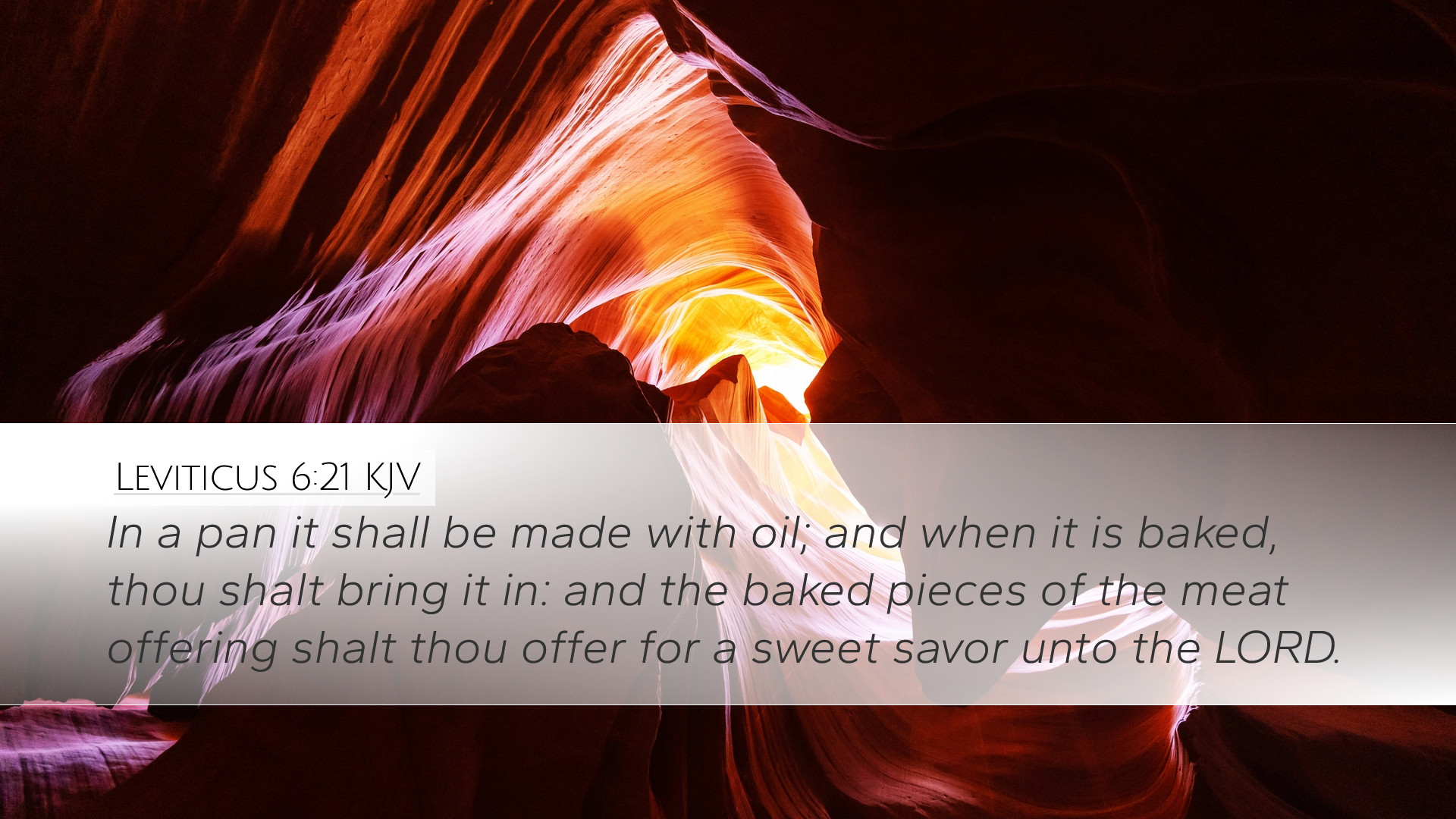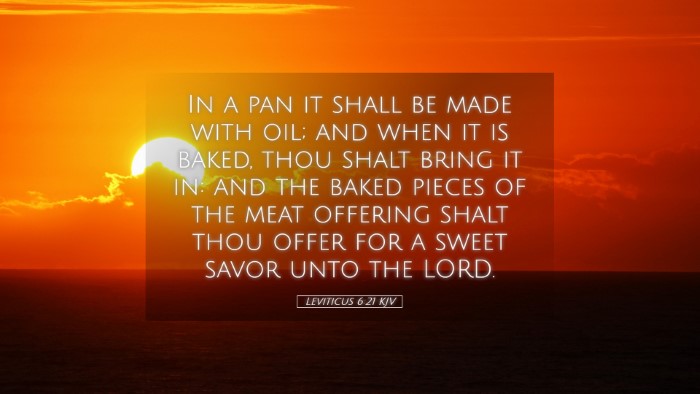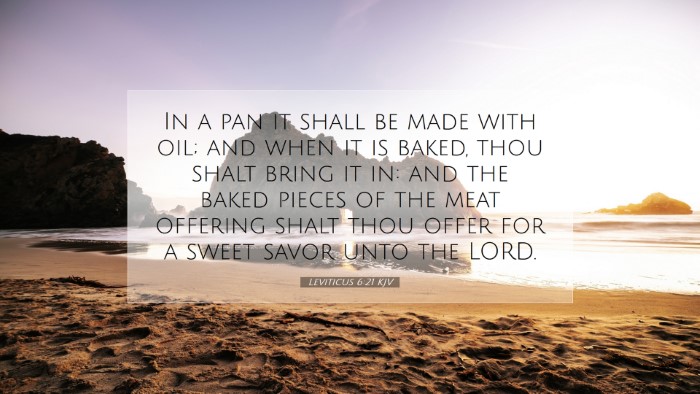Bible Commentary on Leviticus 6:21
Leviticus 6:21 states: "In a earthen vessel it shall be put; and it shall be the fat of the sacrifice of peace offerings." This verse and its context provide rich material for reflective study and are foundational for understanding the sacrificial system of the Israelites.
Contextual Background
The Book of Leviticus primarily consists of laws and regulations concerning worship and the holiness required of God’s people. Chapter 6 specifically deals with the offerings, underscoring the significance of the sacrificial system in maintaining a right relationship with God.
Commentary Insights
Matthew Henry's Commentary
Matthew Henry emphasizes the details of the peace offerings as a means of fellowship between God and His people. He notes that the offering is not merely a ritual but an invitation to genuine communion with God. The mention of the earthen vessel illustrates the humble and accessible nature of worship; it suggests that no elaborate displays were necessary for God’s acceptance. Rather, it is the intent and substance of the heart that truly matters.
Albert Barnes' Notes
Albert Barnes elaborates on the significance of the 'fat' mentioned in this verse. In the sacrificial system, the fat was considered the best part of the offering, reserved for God. This symbolizes the necessity of offering our best to God, representing His supremacy and our acknowledgment of His holiness. The choice of an earthen vessel for the offering reminds believers of their own fragility and the need for humility in approaching God. Barnes further notes that the physical aspects of these sacrifices served as a constant reminder of moral and spiritual responsibilities.
Adam Clarke's Commentary
Adam Clarke discusses the purpose of the peace offering, highlighting its role in expressing gratitude to God for His blessings. He comments on the communal aspect of these offerings, which served to strengthen relationships within the community as well. Clarke suggests that the act of consuming the sacrifice in fellowship demonstrates the joy and gratitude that ought to mark a believer's life. The use of an earthen vessel serves as a metaphor for the hearts of the worshippers, which, while humble, can contain the richness of God’s presence when properly devoted to Him.
Theological Implications
Leviticus 6:21 carries profound theological implications concerning sacrifice and worship. It highlights the necessity of appreciating offerings as not merely ceremonial acts but as reflections of the inner state of the worshippers.
-
Human Frailty: The use of an earthen vessel signifies human frailty and reliance on God. It suggests that only through God’s grace can any offering be rendered acceptable.
-
The Best for God: The fat of the offerings implies that God deserves the best we have. This challenges believers today to consider the quality of what they offer to God, whether in worship, service, or daily living.
-
Community and Fellowship: The peace offering underscores community. It was a shared meal that reinforced community ties and affirms that worship involves both vertical (to God) and horizontal (to others) dimensions.
Conclusion
In summary, Leviticus 6:21 elucidates the importance of the sacrificial system and its implications for worshippers. The intricate details of the offerings encourage a greater understanding of God’s requirements for holiness and community. Pastors, students, theologians, and Bible scholars should reflect on the significance of what it means to bring their best to God and the communal aspects of their faith.


